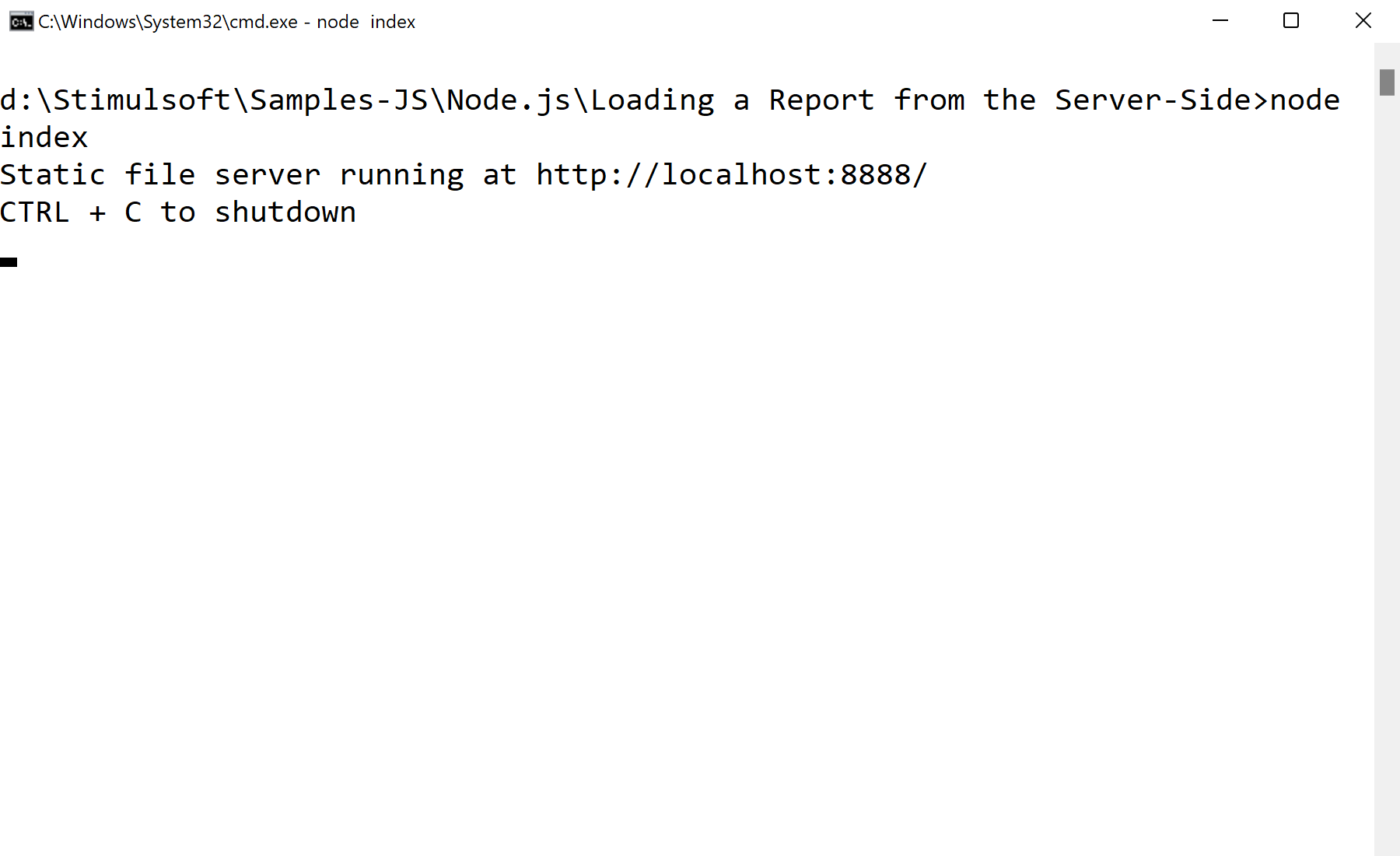This example illustrates loading of the report from the server-side and saving the result to the mdc-file.
Installation and running Use npm to install requred modules:
$ npm install
Run Sample:
$ npm start
Step by step Required and Stimulsoft Reports.JS modules loading:
var http = require("http");
var fs = require('fs');
// Stimulsoft Reports module
var Stimulsoft = require("stimulsoft-reports-js");
Define the accept() function that will process requests to the server and output the desired result at a specific URL address - an HTML page, script and style files, a rendered report:
function accept(req, res) {
//Send index.html
if (req.url == "/") {
res.writeHeader(200, { "Content-Type": "text/html" });
res.end(fs.readFileSync("index.html"));
}
//Send reports.js
else if (req.url == "/stimulsoft.reports.js") {
res.writeHeader(200, { "Content-Type": "text/javascript" });
res.end(fs.readFileSync("node_modules/stimulsoft-reports-js/Scripts/stimulsoft.reports.js"));
}
//Send viewer.js
else if (req.url == "/stimulsoft.viewer.js") {
res.writeHeader(200, { "Content-Type": "text/javascript" });
res.end(fs.readFileSync("node_modules/stimulsoft-reports-js/Scripts/stimulsoft.viewer.js"));
}
//Send report
else if (req.url == "/getReport") {
// Creating new report
var report = new Stimulsoft.Report.StiReport();
// Loading report template
report.loadFile("SimpleList.mrt");
// Renreding report
report.renderAsync(function () {
// Saving rendered report to JSON string
var reportJson = report.saveDocumentToJsonString();
//Send report
res.end(reportJson);
});
}
}
Start the server and specify the required port, in this case, 8888:
console.log("Static file server running at http://localhost:" + 8888 + "/\nCTRL + C to shutdown");
//The HTTP server run on port 8888
http.createServer(accept).listen(8888);
In the screenshot below you can see the result of the sample code:
